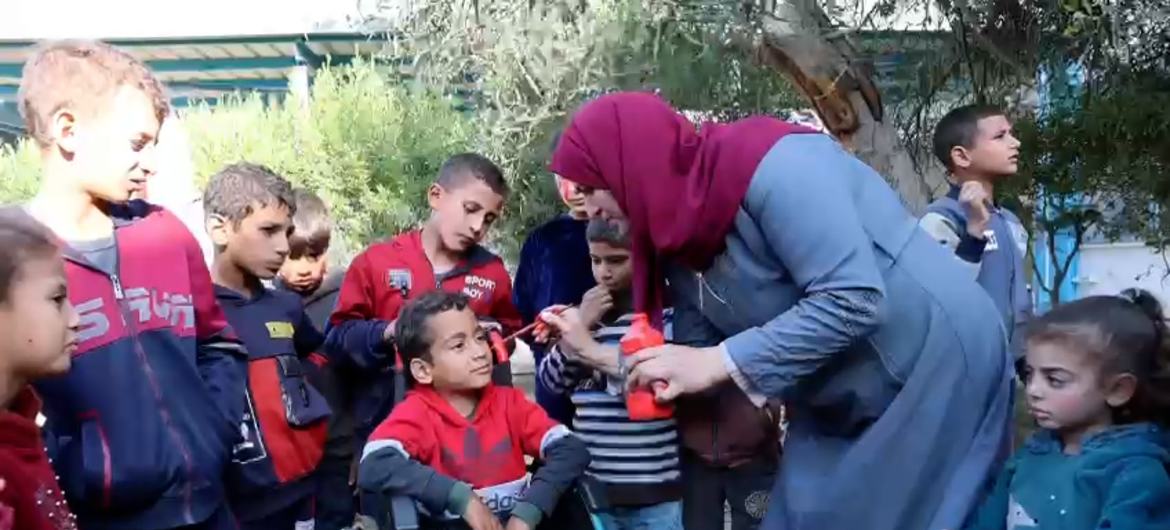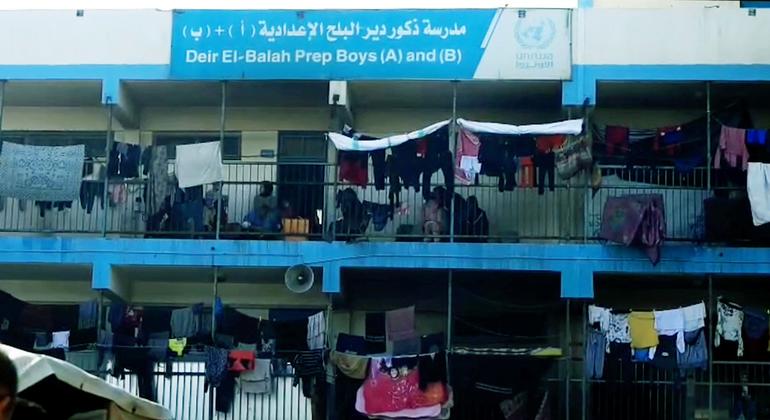“There is scarcely any empty space in the yard or classrooms of the Deir al-Balah Preparatory School, one of more than 700 that are run by UNRWA, the UN agency for Palestine refugees. The yard where children used to take part in sports, have fun and play, is now full of tents.
Ayman Ibrahim Jouda used to teach mathematics to fifth-grade students. Before, he says, it was ‘a citadel of science and education’. With no children to teach, Mr. Jouda has turned to supporting displaced people, trying to answer the questions of those forced to move from other parts of the Strip.
Another teacher working at the Deir al-Balah shelter, Abdulrahman al-Shami, was displaced from Gaza City following the outbreak of hostilities on 7 October 2023. UNRWA, he says, was providing quality educational services. ‘Life here is difficult and bitter,’ he says. ‘We hope to return to our previous life, and a better life.’
I also spoke to some of the children who have been denied education. One told me she dreams of being a journalist when she grows up.
She is currently living in a tent, in cold and rainy conditions, and with little access to clean water. Another teenager spoke of losing his school which, he said, was completely destroyed before he fled with his parents to Deir al-Balah.

Entertainment event for kids in Gaza.
‘Children have the right to play’
At the Tel Al-Sultan clinic in the southern city of Rafah, I witnessed some rare moments of laughter and fun: children painting, dancing, and playing games.
They were taking part in an event organized by pharmacist Sulafa Abu Hilal, as a way of providing some psychological support for children who have endured more than 100 days of war.
‘They have the right to live as children, to play’, declares Mr. Abu Hilal. ‘The goal of this event was to achieve some kind of safety and create the sort of atmosphere that they should be able to enjoy’.
Similar events are being planned at the clinic, and two others in Rafah, for the benefit of the children, and also their parents. ‘Amidst their fear and despair, they saw a ray of hope in the darkness,’ says Mr. Abu Hilal.



